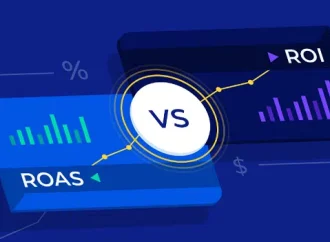Money laundering is a global problem and a serious threat to the integrity of the financial system. It has been estimated that money laundered worldwide is between 2-5% of global GDP. In an effort to combat this activity, the Financial Action Task Force (FATF) – an intergovernmental organisation tasked with setting international standards for combating
Money laundering is a global problem and a serious threat to the integrity of the financial system. It has been estimated that money laundered worldwide is between 2-5% of global GDP. In an effort to combat this activity, the Financial Action Task Force (FATF) – an intergovernmental organisation tasked with setting international standards for combating money laundering and terrorist financing – publishes a list of countries which it considers non-compliant with its rules. This list ranges from “blacklisted” countries – those which are considered non-compliant and uncooperative in addressing their deficiencies – to “grey listed” jurisdictions, like South Africa and Nigeria, which have committed to corrective action plans but have yet to demonstrate full compliance or progress in implementing them. In this article, we will look at why South Africa and Nigeria were placed on the FATF grey-list and what it means for these two nations.
What is money laundering?
Money laundering is the process of disguising the origins of illegally obtained money by funneling it through a series of financial transactions. The goal is to make it appear as if the money came from a legitimate source.
South Africa and Nigeria have been placed on the global anti-money laundering grey-list by the Financial Action Task Force (FATF), an intergovernmental body that sets standards and promotes measures to combat money laundering, terrorist financing, and other related threats to the international financial system.
This designation means that while neither country is considered to be fully compliant with FATF’s recommendations on combating money laundering and terrorist financing, they are making progress in these areas.
What are the consequences of being placed on the global anti-money laundering grey-list?
There are a number of potential consequences for a country that is placed on the global anti-money laundering grey-list. These consequences can range from financial to reputational and can have a significant impact on a country’s economy.
One of the most immediate consequences of being placed on the global anti-money laundering grey-list is financial. This is because countries on the list are often seen as higher risk by international banks and financial institutions. As a result, these banks and institutions may be less likely to do business with or invest in countries on the list. This can lead to reduced capital inflows and a decrease in foreign direct investment (FDI).
In addition to financial consequences, being placed on the global anti-money laundering grey-list can also lead to reputational damage. Countries on the list are often perceived to have weak controls against money laundering and terrorist financing. This perception can discourage businesses and individuals from working with or investing in these countries. In turn, this can further damage a country’s economy by making it harder to attract talent and investment.
How did South Africa and Nigeria end up on the list?
The global anti-money laundering grey-list is a list of countries that have been identified as having weak controls against money laundering and terrorist financing. South Africa and Nigeria were placed on the list due to their lack of progress in implementing adequate reforms to their financial systems. This has led to both countries being seen as high-risk jurisdictions by the Financial Action Task Force (FATF), an intergovernmental body that sets standards for combating money laundering and terrorist financing.
In order to be removed from the grey-list, both countries will need to implement a number of FATF recommendations, including developing better mechanisms for identifying and freezing assets associated with money laundering and terrorist financing. They will also need to improve their cooperation with other countries on sharing information related to financial crimes.
What measures are being taken to remove them from the list?
Nigeria and South Africa have been placed on the global anti-money laundering grey-list by the Financial Action Task Force (FATF). This means that the two countries are now seen as high-risk jurisdictions when it comes to money laundering and terrorist financing.
The FATF is an intergovernmental body that sets standards and promotes effective measures to combat money laundering, terrorist financing and other related threats to the integrity of the international financial system.
In its latest review of Nigeria, the FATF noted that there has been progress in implementing anti-money laundering and countering the financing of terrorism (AML/CFT) measures, but warned that more needs to be done.
The task force said Nigeria must improve its AML/CFT regime in line with international standards, or face being placed on the blacklist.
South Africa was also placed on the grey-list after being found non-compliant with three of the FATF’s recommendations for combating money laundering and terrorist financing.
The task force has given both countries until February 2021 to make sufficient progress in addressing their deficiencies, or face being placed on the blacklist.
Being placed on the blacklist would be a major blow to both countries, as it would result in them being seen as havens for money launderers and terrorists. It could also lead to financial institutions becoming reluctant to do business with them, and make it harder for them to access international funding.
Conclusion
To conclude, it is clear that both South Africa and Nigeria have been placed on the global anti-money laundering grey-list. This development will no doubt have implications for all those involved in finance, as well as other sectors that are affected by money laundering. Despite this unexpected news, both countries should take the necessary steps to improve their compliance with international standards and ensure that they can be removed from this list again soon. With governments willing to work together towards a common goal of fighting financial crime, there is still hope for these two great nations’ futures.





















Leave a Comment
Your email address will not be published. Required fields are marked with *